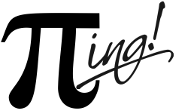 |
PING
0.9
Statistical data handling and processing in production environment
|
 |
PING
0.9
Statistical data handling and processing in production environment
|
NOOOOOOOOOOOOOOOOOO - look at %ds_check
Trim a list of strings to keep only those that actually define existing datasets in a given library.
dsn : (list of) reference dataset(s);lib : (option) name of the input library; by default: WORK is used._dslst_ : name of the macro variable used to store the elements from var that actually define existing variables/fields in dsn.
Let us generate some default datasets in WORKing directory:
we can then retrieve those elements in a given list that actually correspond to existing datasets in WORK:
returns ods=_dstest1 _dstest2 _dstest5.
Run macro %_example_str_listds for more examples.
dsn.dsn matches a dataset in lib, an empty list is set.